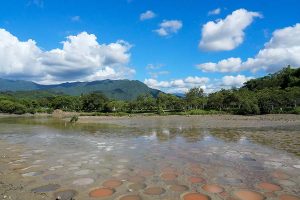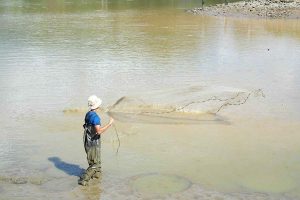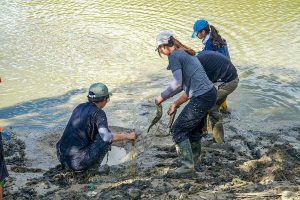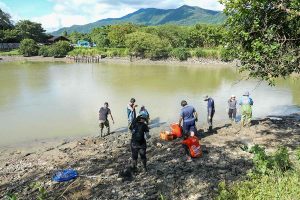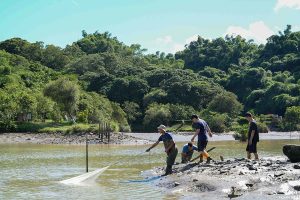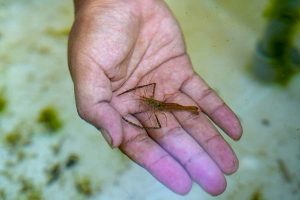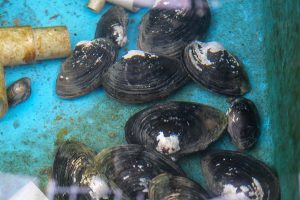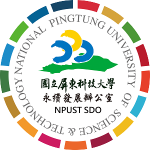This summer (2024), NPUST cooperated with the Tainan Branch of the Agency of Rural Development and Soil and Water Conservation (MOA) to conduct a soil and water conservation and improvement project at Jingsi Lake on the NPUST campus. On July 11, over 30 teachers and students from the Department of Aquaculture and the Institute of Wildlife Conservation worked together to capture the wildlife living in the lake so that a dredging project could be carried out. Both native and non-native species were removed from the area for safe keeping until the dredging was completed. The team then successfully returned the native species they had captured to the lake. For the species which were not native to the area, a new habitat was also provided.
Jingsi Lake originally served as an on-campus breeding pond. In 2003, as part of the Sustainable University Campus Renovation Project funded by the Ministry of Education, the bottom of the pond was cleared of silt and water levels were managed. The university also used natural materials and ecological engineering methods to improve the stability of the surrounding wetland, restore native aquatic plants, and provide a habitat for a variety of organisms. The lake has been serving multiple functions at the university, including flood regulation, water purification, leisure and recreation, and teaching activities. However, over the last few decades, serious siltation and bank erosion has taken place.
Assistant Professor Hsu-Sen Chen from the Department of Aquaculture said that with the long-term use of ponds, problem related to silt accumulation and water nutrient imbalances are prone to happen. Regular pond cleaning can help maintain the health of the water body, and the removal of alien species can help create an aquatic environment more favorable to native species. The students from the Department of Aquaculture who participated this restoration activity had their first experience in wildlife capturing and lake dredging. Although they were covered in mud, it was fresh and interesting for them. Through practical training, students were able to confirm their theoretic learning and deepen their understanding of their professional fields of study.





